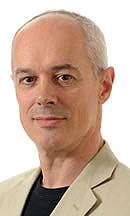Long-established Health and Safety Executive (HSE) committees that assess the risks from some of the most dangerous substances used at work could soon exclude workers and employers, if the regulator gets its way.
One, the WATCH committee on hazardous chemicals, has already been quietly disbanded. Another, the Advisory Committee on Toxic Substances, is under threat, internal HSE papers show. The “tripartite” committees – made up of union, employer and government representatives – are set to be replaced by panels of HSE-selected “expert” advisers.
 TUC head of safety Hugh Robertson says this would be “problematic” as “they may have no knowledge of what is actually happening in the workplace. They are also, it has to be said, often reliant on the government, or bodies such as the HSE, for much of the funding for their work.”
TUC head of safety Hugh Robertson says this would be “problematic” as “they may have no knowledge of what is actually happening in the workplace. They are also, it has to be said, often reliant on the government, or bodies such as the HSE, for much of the funding for their work.”
He says it is important that representatives of unions are retained on these bodies “because they act as brokers for the experience of their members in the workplace. Often they identify issues years before the academics can show conclusively there is a health problem. Asbestos is a case in point but silica, wood dust and a wide range of other products have been identified as problem areas by unions long before academics had the evidence to ‘prove’ there was harm being caused.”
He adds, combined by the long time lag or ‘latency period’ before many occupational diseases strike is why “unions believe in the ‘precautionary principle’ which is that to take action on the basis that there may be a risk until proven otherwise.” Robertson says there may be a darker reason HSE wants to axe the committees. It doesn’t like what the committees have to say. “
ACTS has consistently called for tighter standards on a range of hazardous substances with union representatives supported by the employers only to have their conclusions ignored by the HSE.”
He warns:
“If you exclude workplace representatives, you create a bubble filed with technocrats who are divorced from the reality of working lives. Instead we should accept that academics have a major role - and give them proper funding for work on occupational health - and use their research to apply to the very real problems we have in the workplace today. ACTS and WATCH have been doing that pretty well to date, so let’s not throw it all away.”
Source: Risks / Stronger Unions